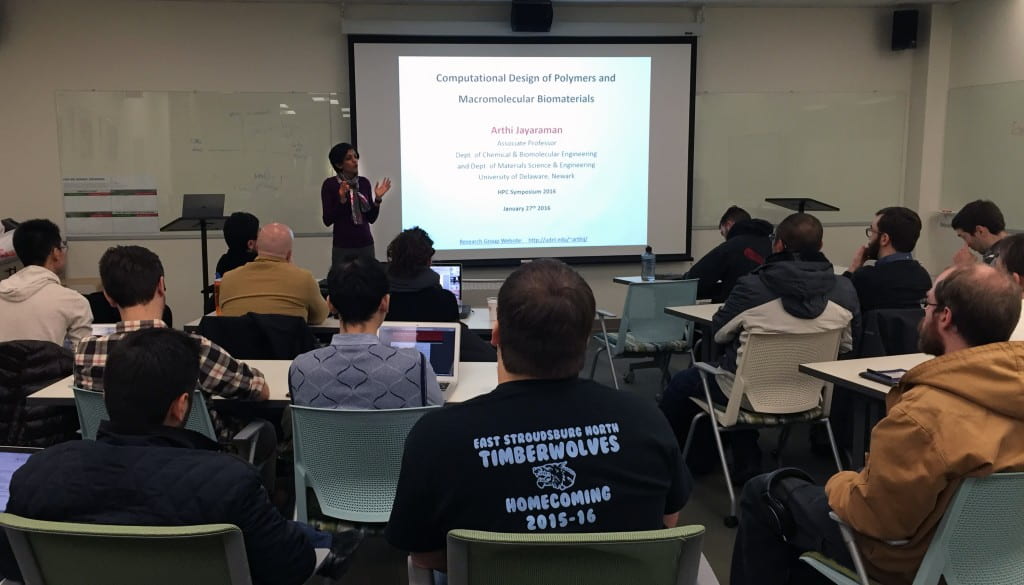
- Date: January 27th, 2016
- Time: 10:00AM-12:00PM
- Location: 116 Pearson Hall, Faculty Commons
High performance computing and molecular simulations for designing materials for biomedical and energy applications
Presenters: Prof. Arthi Jayaraman, Mr. Tyler Martin, 5th year graduate student, and Dr. Ahmad Ghobadi and Dr. Francesca Stanzione, both postdoctoral researchers.
After an announcement about the Mills cluster final year policy, Jayaraman introduced the thirty plus attendees to polymer modeling and simulation—a fundamental process in learning to design polymers for materials like solar cells, tires, and more. Jayaraman continued to explain some of their findings through their simulations and research to providing a context for her research group’s use of the Farber cluster.<.p>
Following Jayaraman’s presentation, PhD student Tyler Martin, Jayaraman research group, gave an overview of using GPUs for molecular dynamics simulations. Martin discussed how the dominant bottleneck in simulations is in calculating four simulation steps over and over. Martin then described the hardware and software improvements that help overcome this bottleneck including Memory Chunking, Domain Decomposition, CPU Parallelization, and GPU Parallelization. He went on to say that GPUs are designed to handle these simple, highly-repetitive tasks very quickly, and therefore are well suited for molecular dynamics simulations.
Dr. Ahmadreza Ghobadi, Jayaraman research group, discussed how he uses Farber to generate, analyze, visualize, and backup data. Ghobadi then went into the specifics of the scripts he uses to complete each of these tasks on Farber. After presenting these examples, Dr. Francesca Stanzione discussed investigating atomistic MD simulations on Farber, using OpenMPI, and optimizing the performance on Farber with GROMACS and Grid-Engine flags.
In all three presentations, Jayaraman’s research group stressed benchmarking to know the resources needed to optimize performance for their application and the use of the community cluster. Stanzione stated “Asking for more resources then you need can actually result is worse performance.”
The session concluded with a discussion about the group’s research and the interest in a new HPC community cluster.

